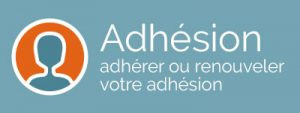Chères et chers collègues,
Le 3e Congrès international de la théorie de l’action conjointe en didactique (TACD) se tiendra du 7 novembre au 9 novembre 2023, en présence, à Brest. Coopération et dispositifs de coopération
L’appel à communication est ci-dessous, les communications pourront être déposées sur le site SciencesConf du congrès à partir du 1er avril 2022 :
https://tacd-2023.sciencesconf.org/?forward-action=index&forward-controller=index&lang=fr
Le comité d’organisation
Appel à communications pour le 3e congrès international de la TACD
Coopération et dispositifs de coopération
Le 3e congrès international de la Théorie de l’Action Conjointe en Didactique (TACD) aura lieu les mardi 7, mercredi 8, et jeudi 9 novembre 2023 à Brest (Université de Bretagne Occidentale, CREAD).
Faisant suite aux deux premières éditions (Rennes, 2019 (Site du congrès 2019 : https://tacd-2019.sciencesconf.org/) et Nancy, 2021 (Site du congrès 2021 : https://tacd-2021.sciencesconf.org/), ce congrès est proposé et organisé par un collectif de recherche travaillant en didactique depuis près d’une vingtaine d’années. Ce collectif réunit des chercheur.e.s appartenant à plusieurs laboratoires (CREAD, UBO-Rennes 2 ; LISEC, Nancy ; LINE, Nice ; CREN, Nantes ; ELLIADD + CRIT, Besançon, Besançon).
Le dépôt des résumés de communication est possible du du 01/04/22 au 10/01/23, sur le site du congrès : https://tacd-2023.sciencesconf.org/?forward-action=index&forward-controller=index&lang=fr
La thématique générale sera celle de la coopération et des dispositifs de coopération, et se décline selon les axes décrits ci-dessous.
1) Les formes générales de la coopération
Nous suivons ici l’orientation donnée par exemple dans la collection d’articles, au sein de la revue Nature Human Behavior, intitulée « The Cooperative Human », ainsi présentée : « Human beings are a social species that relies on cooperation to survive and thrive. Understanding how and why cooperation succeeds or fails is integral to solving the many global challenges we face. » (https://www.nature.com/articles/s41562-018-0389-1).
Seront donc attendues pour cet axe toutes les communications portant sur la nature de la coopération, dans des domaines relatifs aux sciences de la nature et aux sciences de l’homme et de la société : par exemple, la biologie, l’archéologie, l’agronomie, l’écologie, les sciences du langage, l’éthologie, l’anthropologie, l’économie, l’archéologie, le droit, etc.
Dans ce cadre, une attention importante sera accordée aux communications liant coopération, enseignement et apprentissage, dans une perspective anthropologique, (cf. notamment le teaching chez Kline, 2014). Mais plus généralement, toute communication correspondant à l’orientation ci-dessus sera potentiellement bienvenue.
2) La coopération et son histoire dans la vie sociale et politique
Seront attendues pour cet axe toutes les communications portant sur l’histoire et la philosophie de la coopération (par exemple, l’histoire politique et sociale de la coopération, la philosophie politique de la coopération, cf. notamment Fischbach, 2015), sous ses formes les plus diverses (du mouvement ouvrier aux essais contemporains d’institutions de collectifs émancipateurs).
3) Les dispositifs de coopération pour la transmission, la transformation, et l’éducation
Seront attendues pour cet axe toutes les communications portant sur la mise en œuvre de dispositifs de coopération réunissant par exemple professionnel.les et chercheur.s, quels que soient par ailleurs les « outils théoriques » « accompagnant » ces dispositifs (cf. notamment Collectif Didactique pour Enseigner, 2019 ; En préparation).
Dans ce cadre, une attention importante sera accordée aux communications montrant comment les dispositifs de coopération mis en œuvre ont pour ambition de contribuer à une reconstruction de la forme scolaire et de la forme d’éducation, ainsi qu’à celles, dans le cadre scolaire, qui traitent les questions didactiques relevant de la coopération des élèves dans la classe. Dans cette perspective, les questions d’ordre méthodologiques pourront faire l’objet d’une centration spécifique.
Dans cet axe, les communications ont vocation à être construites et présentées par un binôme ou un petit collectif regroupant à la fois un.e/des professionnel.les et un.e/des chercheur.e.s.
Premiers éléments bibliographiques
Kline, M. A. (2014). How to learn about teaching : An evolutionary framework for the study of teaching behavior in humans and other animals. Behavioral and Brain Sciences, 1‑70. https://doi.org/10.1017/S0140525X14000090
Fischbach, F. (2015). Le sens du social : Les puissances de la coopération. Lux Éditeur.
Chaîne Youtube TACD : https://www.youtube.com/channel/UCaOa5OdRGjHewE1ioT4D1bg/videos
Collectif Didactique pour Enseigner (2019). Didactique pour Enseigner. Presses Universitaires de Rennes.
Collectif Didactique pour Enseigner (en préparation). Un art de faire ensemble : les ingénieries coopératives.
Call for papers for the 3rd international JATD congress
Cooperation and designs based on cooperation
The third international Joint Action Theory in Didactics congress (JATD) will be held in Brest/Rennes (Université de Bretagne Occidentale, CREAD) from Tuesday the 7th of November to Thursday the 9th of November.
As with the two previous congresses (Rennes, 2019 (Website: https://tacd-2019.sciencesconf.org/) et Nancy, 2021 (Website: https://tacd-2021.sciencesconf.org/), this event will be presented and organised by a research group which has worked in the field of didactics for almost twenty years. The group brings together researchers from a number of laboratories (CREAD, UBO-RENNES 2, LISEC, Nancy, LINE, Nice, CREN, Nantes, ELLIADD + CRIT, Besançon).
The submission of abstracts is possible from 01/04/22 to 10/01/23, on the congress website: https://tacd-2023.sciencesconf.org/?forward-action=index&forward-controller=index&lang=fr
The general theme will be that of cooperation and cooperative designs. This will be broken down into the following lines of research.
1) General forms of cooperation
This is in-keeping with the approach exemplified in a collection of articles in Nature Human Behavior entitled « The Cooperative Human » introduced thus : « Human beings are a social species that rely on cooperation to survive and thrive. Understanding how and why cooperation succeeds or fails is integral to solving the many global challenges we face. » (https://www.nature.com/articles/s41562-018-0389-1)
Expected propositions for this line of research will focus on the nature of cooperation in areas relative to natural science as well as human and social sciences. For example, biology, archaeology, agronomy, ecology, ethology, anthropology, economy, archaeology, language, law and so on.
Particular attention will be paid to communications linking teaching and learning with cooperation from an anthropological perspective (see teaching, Kline, 2014). However, in general, any communication pertinent to the above description will be potentially welcomed.
2) Cooperation and its history in the social and political world
Expected propositions for this line of research will focus on the history and philosophy of cooperation (for example, the political and social history of cooperation, the political philosophy of cooperation, see in particular Fischbach, 2015), in all its diverse forms (from labour movements to contemporary experiments setting up collectives of empowerment).
3) Cooperative designs which seek to transmit, transform and educate
Expected propositions for this line of research will focus on cooperative practices and structures bringing together professionals and researchers, irrespective of their theoretical tools (see in particular Collectif Didactique pour Enseigner, 2019).
In this context, specific attention will be paid to communications demonstrating how existing cooperative designs seek to contribute to the reconstruction of the form of schooling and the form of education. In the educational sphere, this will include papers treating as a didactic question issues of cooperation between students in class. It will be possible to focus specifically on methodological questions in this area. For this line of research, communications should be developed and presented by a researcher and professional as a pair, or by a number of professionals and researchers in a small group.
Preliminary selected bibliography
JATD Youtube Channel:https://www.youtube.com/channel/UCaOa5OdRGjHewE1ioT4D1bg/videos
Kline, M. A. (2014). How to learn about teaching : An evolutionary framework for the study of teaching behavior in humans and other animals. Behavioral and Brain Sciences, 1‑70. https://doi.org/10.1017/S0140525X14000090
Fischbach, F. (2015). Le sens du social : Les puissances de la coopération. Lux Éditeur. Collectif Didactique pour Enseigner (2019). Didactique pour Enseigner. Presses Universitaires de Rennes.


